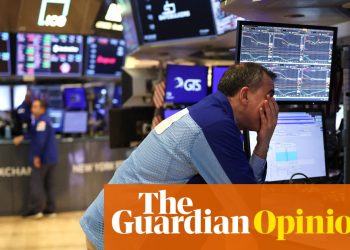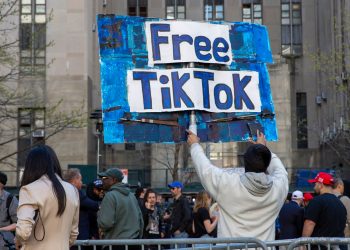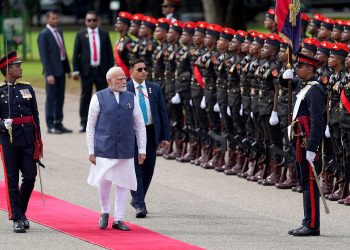Donald Trump’s announcement of a “liberation day”, involving the imposition of tariffs on almost every country in the world, is one of a series of measures which call for an urgent reorientation of Australia’s economic and foreign policy. It is, in effect, a commitment to remove the United States from the global economy, which is seen by Trump as unfair and exploitative of Americans.
The 10% tariff imposed on Australian exports is not of great concern in itself. The US is only our fifth-largest export market and would be ranked even lower by measures that aggregated the EU and Asean trading blocs. Moreover, the inevitable retaliation by other countries against US exports, particularly in agriculture, will remove a major competitor for Australian exports.
There will be much bigger effects from further rounds of escalation. In Trump’s first term, when his presidency was seen as an aberration, EU retaliation was limited to symbolic measures directed at Trump supporters, such as tariffs on Kentucky bourbon. These have been threatened again. But now it is America rather than Trump alone that is seen as an enemy by Europeans, a sentiment increasingly reciprocated by Trump’s Republican supporters.
And with Trump now announcing plans for a third term (and implicitly a presidency for life), the idea of waiting him out has ceased to be meaningful. Instead, the EU is looking at invoking its anti-coercion mechanism, initially developed in response to China’s ill-fated experiment in “wolf warrior” trade policy. That would hit the US where it hurts, in digital and financial services, leading to yet further retaliation.
American withdrawal from the global economy goes far beyond tariff policy. The US has withdrawn from a wide range of international organisations and treaties, abandoned international development aid and cancelled scientific research funding for joint projects in Australia and other countries. The World Bank, the International Monetary Fund and even the United Nations could meet the same fate. In any case, the continued location of these bodies in the US seems increasingly untenable, as the country slides from semi-democracy into autocracy.
Meanwhile, the Trump administration’s domestic policies, including the assault on universities and the rejection of medical science, are setting a course for long-term economic decline. Whereas the US has traditionally attracted the best and brightest researchers from around the world, the direction is now reversing. Although the idea of emigration is an illusion for most Americans, scientists fleeing the regime will find a warm welcome in many places, just as the US welcomed a similar wave of scientific émigrés from Germany in the 1930s.
But there is no sign that any of this is deterring Trump, or his supporters. Although Republicans have suffered some modest electoral reverses recently, Trump’s approval ratings are still higher than those of his departing predecessor, Joe Biden. The idea that America should stand alone, while dictating terms to “lesser breeds without the law”, seems to have strong appeal.
The closest recent parallel to Trump’s liberation day rhetoric is the North Korean Juche ideology. Although hard to translate, it is often rendered in English as “self-reliance”, “autonomy” and “independence”. Economists use the term “autarky”. Unlike in North Korea, a shift to autarky will not reduce the US to miserable poverty. A withdrawal from the global economy will produce a short-run recession and long-run stagnation in the US, but not necessarily an economic collapse.
How should Australia respond to these developments? Unsurprisingly, the initial response has been denial, followed by (notably unsuccessful) bargaining. We are now beginning to see anger and depression, as the reality of the situation sinks in.
Acceptance will come with the recognition that the US is no longer part of our economic and geopolitical future. This creates an opportunity to finally engage fully with our region and become, politically and economically as well as geographically, an Asian nation. The crucial steps here are to seek membership of the Association of Southeast Asian Nations (Asean) and to find a balance between the would-be hegemons of our region, the US and China. This can’t be done until we abandon both the idea that the US is a friend, and the alliances inherited from the era when this was true.
Breaking with the US will be painful in all sorts of ways. But the break is coming whether we like it or not. Rather than pretending that the return of US democracy is just around the corner, we should welcome the opportunities of becoming a full participant in the most dynamic region in the global economy.
#Breaking #painful #Australia #ways #inevitable #John #Quiggin






















